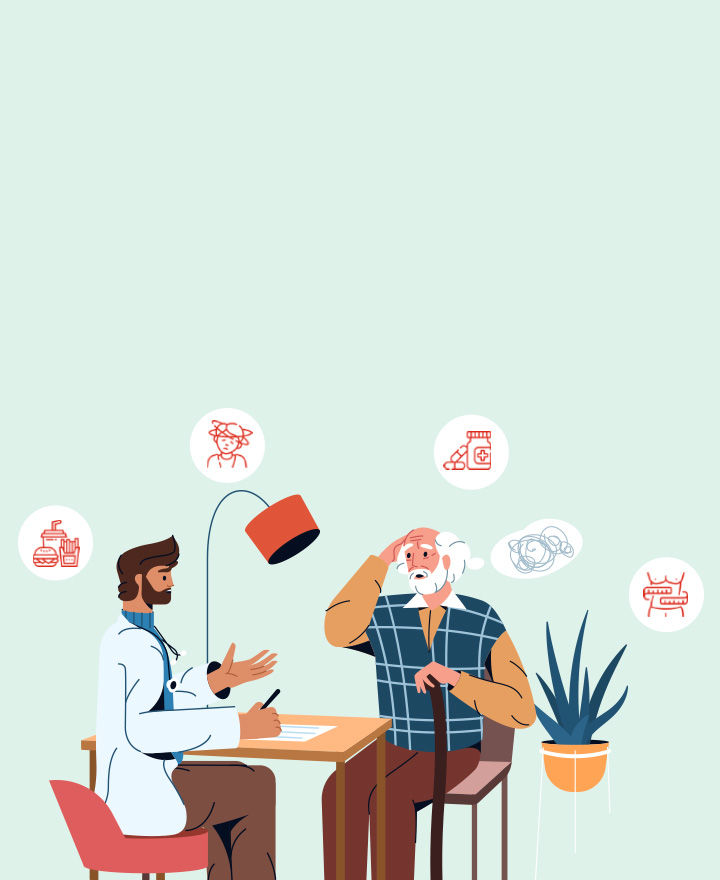

Finasteride for Hair Loss: Benefits, Side Effects, and more
Finasteride for hair loss is quite a popular medication among many, especially those suffering from male pattern baldness as it addresses the very cause of baldness. But like all medications, finasteride has a few possible side effects that must be taken into consideration. Read on to understand the pros and possible risks before you go ahead with this form of hair loss treatment.
What Does Finasteride Treat?
There are primarily two indications for prescribing finasteride: male pattern baldness and benign prostatic hyperplasia. Amongst the total population affected by hair loss, finasteride is recommended for androgenetic alopecia, commonly referred to as male pattern baldness. Androgenetic alopecia is the gradual thinning of hair, mostly starting from the crown of the head, which progresses forward with time.
Finasteride for hair loss prevents the conversion of testosterone into dihydrotestosterone, the androgen that causes baldness. Therefore, it reduces DHT levels in the scalp and, in this way, slows down the process of losing hair or even stimulates hair growth in many cases.
Side Effects of Finasteride
Although finasteride has been prescribed as a hair loss medication, some potential side effects have been observed. Below are some notable finasteride side effects —
• Sexual Side Effects:
Probably the most commonly reported finasteride-related side effect relates to sexual dysfunction. Many users will report decreased libido, erectile dysfunction, or reduced ejaculate volume. Some users report that the effects are prolonged even after the discontinuation of medication
• Changes in Mood and Hormonal Balance:
Finasteride acts on hormonal balance in the body; thus, in some men, the change might be felt in their mood or mental health. There are reports of depression, anxiety, and other modalities associated with or caused by finasteride. Significant changes in mental health need to be brought up with a healthcare provider.
• Gynecomastia:
In rare cases, the drug can be responsible for gynecomastia, which is an increase in male breast tissue. Although this is rare, it could be a source of concern with people who take this medicine.
• Allergic Reactions:
Allergic reactions to this medication do occur, though rarely. There are rashes, itching, and swellings. If any of these symptoms are experienced, the person should immediately contact his/her physician or other medical professional for assistance.
• Other Effects:
Some people experience feeling dizzy, headaches, and abdominal discomfort. Although these are less frequently reported, it is worth taking note.
Things to Consider
Here are some helpful tips to keep in mind when using finasteride for hair loss:
1. Be patient with results –
Hair regrowth can take 3-6 months, so stick with the treatment and give it time to work.
2. Monitor for side effects –
Stay aware of potential side effects like decreased libido or mood changes, and inform your doctor immediately if you notice any.
3. Consult your doctor first –
Always seek medical advice before starting finasteride to ensure it’s the right option for you.
4. Maintain a balanced lifestyle –
A healthy diet, regular exercise, and managing stress can support hair health and improve overall results.
5. Schedule regular check-ups –
Keep in touch with your healthcare provider to monitor progress and adjust the dosage as needed.
Conclusion
Finasteride is one of the popular medications for treating hair loss. However, the use of this medicine has some potential adverse side effects a person may experience. Knowing the possible side effects will help you decide if finasteride is the right treatment option for you. Judicious use and professional advice are vital in balancing the risks of possible side effects against the desired benefit.
One of the important components of our overall wellness is also being financially secured. Healthcare emergencies can happen any time, but a good health insurance policy can protect you from such uncertain situations. To know more about Wellness and other health related tips, visit the wellness corner.
Source: mayoclinic.org, medlineplus.gov, healthline.com, aad.org
Disclaimer: This blog provides general information and discussions about health and related subjects. The information and other content provided in this blog, website or in any linked materials are not intended and should not be considered, or used as a substitute for, medical advice, diagnosis or treatment. Kindly contact your Doctor before starting a new medicine or health regime.
Related Articles
Is Dandruff a contagious disease
Oily Scalp - Causes, Treatment & Prevention
Foods For Healthy Hair - Ways to Make Your Dull Hair Shine
Hair Care Routine For Women- Step By Step Guide
Published on October 29, 2024














 Health Insurance
Health Insurance  Travel Insurance
Travel Insurance  Car Insurance
Car Insurance  Cyber Insurance
Cyber Insurance  Critical Illness Insurance
Critical Illness Insurance
 Pet Insurance
Pet Insurance
 Bike/Two Wheeler Insurance
Bike/Two Wheeler Insurance  Home Insurance
Home Insurance  Third Party Vehicle Ins.
Third Party Vehicle Ins.  Tractor Insurance
Tractor Insurance  Goods Carrying Vehicle Ins.
Goods Carrying Vehicle Ins.  Passenger Carrying Vehicle Ins.
Passenger Carrying Vehicle Ins.  Compulsory Personal Accident Insurance
Compulsory Personal Accident Insurance  Travel Insurance
Travel Insurance  Rural
Rural